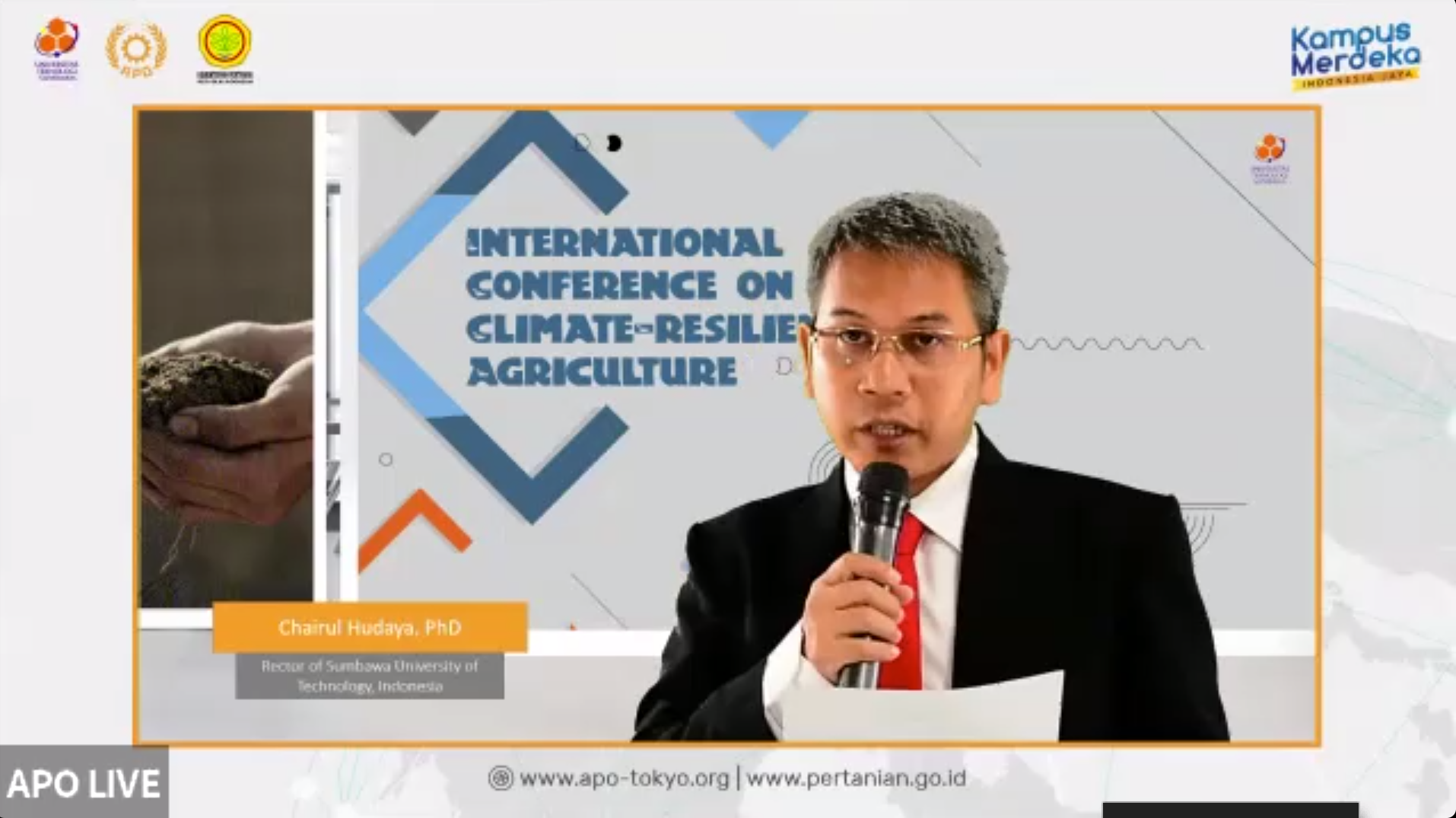
Select Page
 Agriculture is the most climate-vulnerable sector of the economy, although the adaptive abilities of farmers and optimal utilization of resources can mitigate the effects of climate change. Threats to livelihoods, food security, and productivity from climate change make this a vital global issue. The APO continues to disseminate information on innovative technologies, practices, and policies to enable productivity enhancement under adverse situations like climate change. Sharing best practices and ready-to-apply ideas from the Asia-Pacific is part of the package of APO capacity-development programs to cope with climate change and contribute to meeting the UN Sustainable Development Goals (SDGs), particularly SDG 13 (action to combat climate change and its impacts).
Agriculture is the most climate-vulnerable sector of the economy, although the adaptive abilities of farmers and optimal utilization of resources can mitigate the effects of climate change. Threats to livelihoods, food security, and productivity from climate change make this a vital global issue. The APO continues to disseminate information on innovative technologies, practices, and policies to enable productivity enhancement under adverse situations like climate change. Sharing best practices and ready-to-apply ideas from the Asia-Pacific is part of the package of APO capacity-development programs to cope with climate change and contribute to meeting the UN Sustainable Development Goals (SDGs), particularly SDG 13 (action to combat climate change and its impacts).
To disseminate knowledge of innovative climate-resilient technologies and management methods by reviewing advances and innovations in the agriculture sector and discuss the scope and opportunities for promoting successful models and best practices of climate-resilient farming in member countries, Sumbawa University of Technology, the Ministry of Agriculture, and National Productivity Organization (NPO) of Indonesia in cooperation with the APO Secretariat organized the conference on Climate-resilient Agriculture via virtual sessions on 9 March. Eighty-one participants from 14 member countries as well as four resource persons from Australia, Bangladesh, India, and host Indonesia attended.
The opening session featured remarks by Indonesian NPO Head Fahrurozi, Sumbawa University of Technology Rector Dr. Chairul Hudayta, and APO Secretary-General Dr. AKP Mochtan. All stressed the importance of the topic from regional and global perspectives and how the adoption of climate-resilient farm production technologies and systems could sustain agricultural productivity and profitability despite climate change. The conference concluded with remarks by Director Dr. Ade Candradijaya of the Bureau for International Cooperation, Ministry of Agriculture, Indonesia.
The resource persons discussed different perspectives on climate change including soil regeneration to aid mitigation efforts, participatory assessment of climate impacts on agriculture and social enterprises, collective extension approaches to climate-smart technology adoption, strategic innovation of regulations for greater climate resilience, and the role of techno parks in supporting sustainable farming in the 728,484-ha UNESCO-designated biosphere reserve in Indonesia’s Saleh–Moyo–Tambora (SAMOTA) region. Participants and resource persons then engaged in a panel discussion on ways to encourage farmers to adopt climate-resilient production technologies and systems.